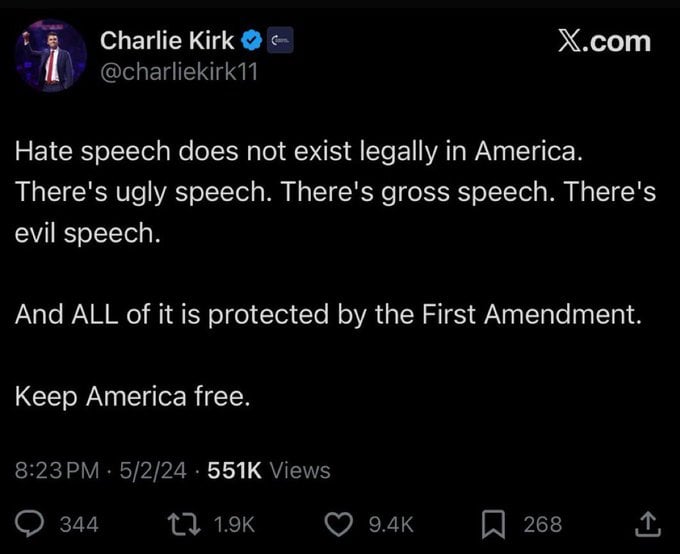Friday, September 19, 2025. Annette’s Roundup for Democracy.
Trump tries to ruin almost every day, but there are people and organizations fighting back.
On the First Amendment. On Charlie Kirk murder. On Jimmy Kimmel firing.
Touch to watch.👇
Hell has frozen over. Tucker Carlson is calling out the fascist authoritarian Trump regime for insidiously using the assassination of Charlie Kirk as an excuse to abolish the First Amendment, round up Americans, and carry out the Nazification of America. pic.twitter.com/MnmAVAVU7B
— Bill Madden (@maddenifico) September 17, 2025
On censorship and American History.
3 Responses from President Obama.👇
This commentary offers a clear, powerful statement of why freedom of speech is at the heart of democracy and must be defended, whether the speaker is Charlie Kirk or Jimmy Kimmel, MAGA supporters or MAGA opponents.
— Barack Obama (@BarackObama) September 19, 2025
First there’s this piece by David French, who devoted much of his legal career to defending the First Amendment rights of conservative writers and scholars https://t.co/V8VzYAnJw8
— Barack Obama (@BarackObama) September 19, 2025
Second, it’s worth reading this excerpt from Frederick Douglass https://t.co/qFD9Aux4p8
— Barack Obama (@BarackObama) September 19, 2025
David Letterman to Jeffrey Goldberg on Jimmy Kimmel’s suspension: “You can’t go around firing somebody because you’re fearful or trying to suck up to an authoritarian—a criminal—administration in the Oval Office. That’s just not how this works.” #TAF25 pic.twitter.com/yJxXOXjlj4
— The Atlantic (@TheAtlantic) September 18, 2025
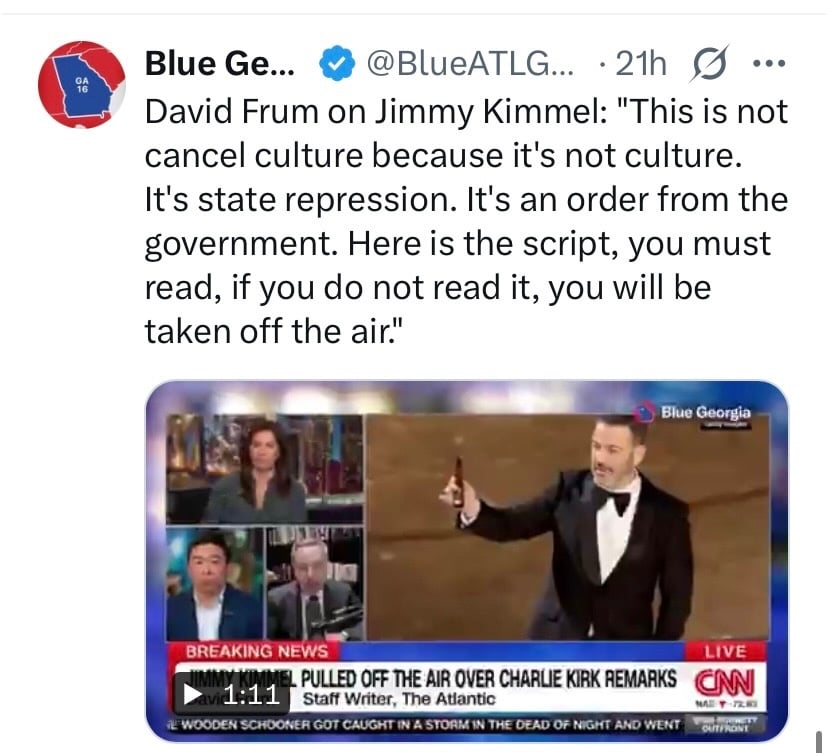
Last night Jon Stewart delivered an administration compliant” show.
Touch to watch.👇
Congressman Eric Swalwell.
BREAKING: Eric Swalwell just told the FCC chairman to hire a lawyer and preserve records because they will be held accountable in 2027 when democrats take the House.
— Brian Krassenstein (@krassenstein) September 18, 2025
Oh and he’s wearing a Jimmy Kimmel hat. pic.twitter.com/M3oWcMJJWR
Swalwell: There’s going to be a Democratic majority in just over a year. To the FCC chairperson and anyone in involved in these dirty deals: get a lawyer and save your records because you’re going to be in this room answering questions pic.twitter.com/JSITL4BCSJ
— Acyn (@Acyn) September 18, 2025
🚨FOLLOW THE MONEY
— CALL TO ACTIVISM (@CalltoActivism) September 18, 2025
Here’s the REAL reason Jimmy Kimmel was pulled: Nexstar needs Trump’s approval for its $6.2B merger with Tegna. Just like CBS, they’re silencing dissent to keep him happy.
This stinks to high heaven.
pic.twitter.com/uPqmIVjQcZ
Brendan Carr is the Chair of the FCC.
This aged well. pic.twitter.com/ooVBbbjgp6
— Gavin Newsom (@GavinNewsom) September 18, 2025
Oh hey there @BrendanCarrFCC this appears to be you? pic.twitter.com/EbQ2EqrGw3
— Adam Kinzinger (Slava Ukraini) 🇺🇸🇺🇦 (@AdamKinzinger) September 18, 2025
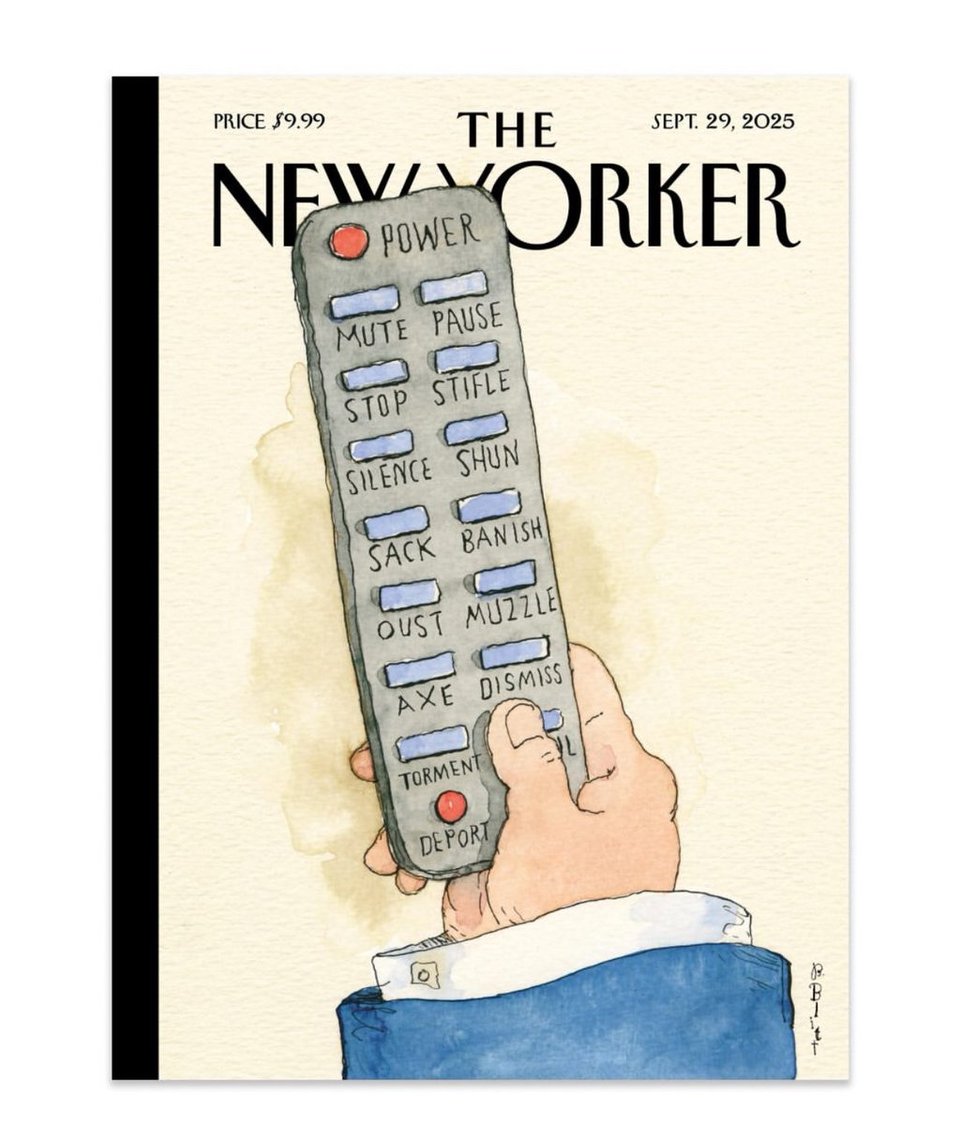
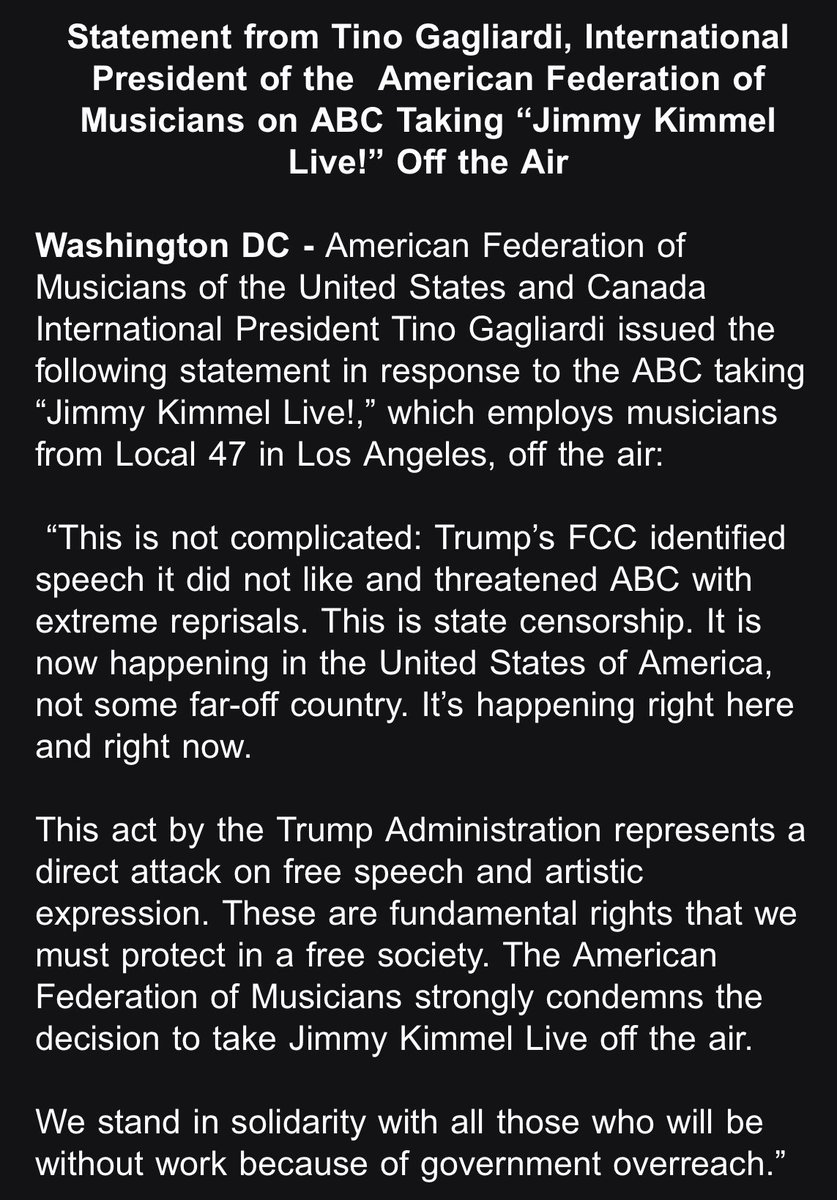
Jimmy Kimmel Should Have Strong Odds at the Supreme Court - OPINION POLITICO
He should sue the Trump administration.
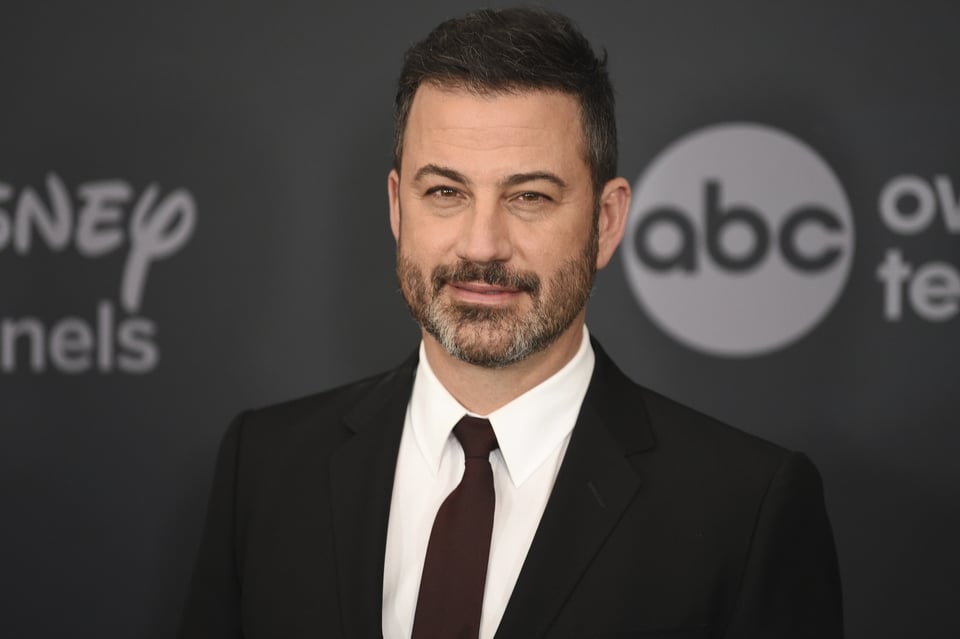
During the Biden administration, many Republicans objected strenuously to federal agencies’ efforts to shape social media companies’ rules on speech about Covid. When red states brought suit and persuaded the Supreme Court to accept the case, conservatives celebrated: Sen. Eric Schmitt (R-Mo.), who’d previously filed the suit as Missouri attorney general, called it “one of the most important free speech cases in a generation.”
A divided Supreme Court dismissed the suit in the end on a procedural technicality, but it left little doubt that government “jawboning” of private media companies to silence speech — even false and potentially misleading speech — was prohibited by the First Amendment. Indeed, it was a phalanx of arch-conversative justices led by Justice Samuel Alito who insisted most forcefully on that constitutional principle.
Today, the shoe is on the other foot. It is a Republican administration that is using the threat of regulatory investigations and sanctions against a pillar of the American media — ABC, which is owned by Disney — to silence speech it disdains.
The resulting corporate decision to suspend Jimmy Kimmel from late-night television runs squarely afoul of the First Amendment. The constitution doesn’t guarantee Kimmel a talk show, but it does guarantee that the government won’t quash his speech because of what he chooses to say. Kimmel now has a straightforward suit for damages and forward-looking relief that he can and should file — not just against ABC, but also against the government officials who were the driving force for his embarrassing public disciplining.
The basic facts of Kimmel’s suspension are straightforward. The late-night host has been accused of mischaracterizing the motives of the alleged assassin of conservative activist Charlie Kirk, suggesting he may have hailed from the political right. On Wednesday, the chair of the Federal Communications Commission, Brendan Carr, appeared on Benny Johnson’s podcast and described Kimmel’s remarks as part of a “concerted effort to lie to the American people.” The FCC, he said, has “remedies that we can look at.” He added: “We can do this the easy way or the hard way …. These companies can find ways to change conduct and take action, frankly, on Kimmel, or there’s going to be additional work for the FCC ahead.”
After Carr’s threat, Nexstar, an owner of many ABC affiliate stations, said that it wouldn’t run Kimmel’s program “for the foreseeable future” because of his Kirk comments. (Notably, Nexstar is planning to acquire a rival company, Tegna, in a $6.2 billion deal that will require FCC approval.)
Mere hours later, ABC had removed Kimmel from the air.
When the Supreme Court dismissed the Covid-social media suit against the Biden administration, it held that the plaintiffs lacked a legal right to sue — called standing — because they could not link anything the federal government did to the suppression of their speech. As Justice Amy Coney Barrett put it, the flaw in the case was a “lack of specific causation findings with respect to any discrete instance of content moderation.”
Here, by contrast, the evidence of “specific causation” is plain to see: Carr threatens ABC unless it sanctions Kimmel. ABC does as Carr asks. The FCC, to be sure, does not have authority to police the alleged truth of statements made on television. But that doesn’t mean that the agency can’t use its investigative powers to raise costs for targeted media outlets and it can clearly exert its influence on any potential acquisitions. And for all his recent talk about supporting free speech, this isn’t Carr’s first pressure campaign against a perceived antagonist of President Donald Trump. In July, he issued threats against Comcast, demanding more favorable coverage of Republicans from its NBC affiliates.
The Trump administration also has a clear model when it comes to leaning on media firms to silence speech it dislikes: The president’s executive orders punishing law firms for their association with disfavored clients and advocacy of out-of-season causes likewise deployed regulatory tools to try to achieve plainly impermissible censorship. Like Carr’s action this week, those executive orders in part worked through the economic pressure firms experienced, even as their First Amendment rights were being violated.
Although the Supreme Court did not ultimately decide the merits in the social media case, no justice doubted the clear-as-day First Amendment principle that, as Alito explained, “government officials may not coerce private entities to suppress speech.” Indeed, less than a month beforehand, the unanimous court held in a different case that the First Amendment “prohibits government officials from relying on the ‘threat of invoking legal sanctions and other means of coercion . . . to achieve the suppression’ of disfavored speech.”
In a separate opinion, Justice Neil Gorsuch explained what a plaintiff needed to show to get into court: Could the government’s conduct, when “viewed in context,” be “reasonably understood to convey a threat of adverse government action in order to punish or suppress the plaintiff ’s speech?”
This principle is both simple and sound: The government can’t do indirectly, through shadowy threats and mafia-like intimidation, what it is barred from doing directly. Indeed, this is a principle that even Trump apparently believes in: In July 2021, he filed civil actions against Facebook, Twitter and YouTube alleging that unconstitutional government jaw-boning of those firms led to the take-down and shadow banning of his and others’ speech.
Kimmel may have contractual remedies against ABC. But he also has a powerful constitutional claim for prospective relief and damages against the federal government much like the one that Trump sought to vindicate in 2021. A principled consistency would require those who objected to the Biden administration’s engagement with social media firms to support Kimmel. (To be clear, I am not holding my breath.)
If Kimmel sues, it wouldn’t just vindicate his own interests: It would be a way of defending a sorely tested bulwark of the free press, one that has come under increasing strain in recent days and months. It would, in other words, be another way for Kimmel to speak truth to misused power — just with fewer jokes. (Politico)
As Partisans Battle Over History, Former Presidents Try Another Tack
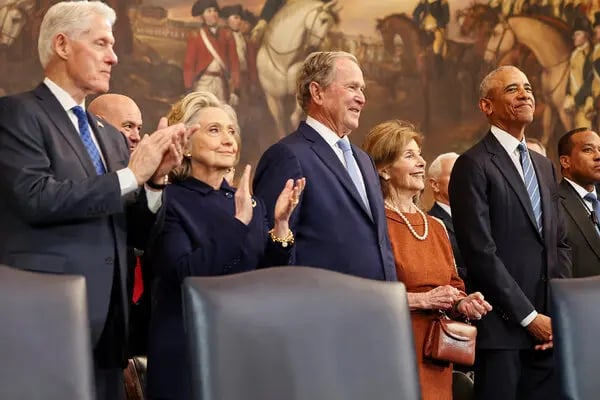
An essay series led by the archivist whom President Trump fired will feature voices from across the political spectrum, including those of George W. Bush and Barack Obama.
Amid escalating partisan battles over American history, three former presidents are joining with historians and other prominent figures from across the political spectrum, in an online history essay series aimed at exploring the resilience of American democracy.
In Pursuit, as the project is called, will kick off on Presidents’ Day next year, with an essay by George W. Bush on George Washington, the only U.S. president who did not represent a political party. The series, which will be freely available on Substack, will run forward chronologically through the other presidents, and include Barack Obama writing on Abraham Lincoln and Bill Clinton on Theodore Roosevelt.
The rest of the authors will be a bipartisan mix, including Chief Justice John Roberts, the Fox News anchor Bret Baier, General Stanley McChrystal and seven Pulitzer Prize-winning historians. There will also be essays on some first ladies, with contributions from Hillary Clinton, Laura Bush and Michelle Obama.
The project is led by Colleen Shogan, a former archivist of the United States. In an interview, she described it as an attempt to provide accessible, high quality, historical content relating to the 250th anniversary of the Declaration of Independence next summer.
Dr. Shogan, who was recruited for the project after being fired from the National Archives by President Trump in February, said it was also a display of faith in the battered ideal of nonpartisan history.
“This is designed not to be partisan, not to be divisive, not to be ideological in any way,” she said. “I think that has been evident from the people we have been able to recruit.”
Shogan acknowledged that many people may be skeptical that nonpartisan history is even possible in today’s charged political climate. But she said it remained a necessary aspiration.
“If we don’t attempt to maintain that nonpartisanship,” she said, “we are in danger of losing the trust that the American people place on the institutions that safeguard our American heritage and history.”
The effort is a project of More Perfect, an alliance of 37 presidential centers and more than 100 other civics and educational organizations. More Perfect was founded four years ago by John Bridgeland, a former domestic policy adviser to George W. Bush, with the goal of providing coordination and accountability standards to the field of democracy education, which has received a flood of investment in recent years.
(This week, for instance, a group of funders including the Bezos Family Foundation and Stand Together, a network founded by Charles Koch, announced more than $56 million in new funding for civics efforts, much of which will be distributed through More Perfect.)
Mr. Bridgeland, echoing a common sentiment expressed by people in the field, said that Americans were not as divided as they might appear to be.
“Our surveys show that a large majority want to get back to problem solving, and they worry about our democracy because it is not focused on problem solving,” he said.
Still, efforts like In Pursuit may seem to be swimming against a powerful tide of partisan conflict over history. Since returning to office, Mr. Trump has moved to assert control over federal cultural institutions including the Smithsonian, which he has accused of reflecting a “divisive, race-centered ideology.”
For the White House’s own 250th-themed history offerings, it has turned to conservative organizations like PragerU, an online media platform, and Hillsdale College, which has been a driving force behind Mr. Trump’s 1776 Commission report calling for a return to “patriotic” education.
In Pursuit’s contributors include some cultural leaders who have come under attack from the Trump administration, including Lonnie Bunch, the secretary of the Smithsonian, and Carla Hayden, the former librarian of Congress, who was fired in May for her support for diversity initiatives. (Mr. Bunch will write about Martin Van Buren. Dr. Hayden will write about Laura Bush, a fellow former children’s librarian.)
In Pursuit will not include essays by or about Mr. Trump or Joseph R. Biden Jr. The essays on the presidents will conclude with one on Mr. Obama, by the historian Douglas Brinkley.
Other offerings will include Jon Meacham, a historian who advised Mr. Biden on his speeches and spoke at George H.W. Bush’s funeral, on Andrew Jackson, and Karl Rove, a political strategist and top adviser to the younger Mr. Bush, on William McKinley. Justice Roberts will write about William Howard Taft, the only person to serve both as president and chief justice of the Supreme Court.
In Pursuit will be a decade-long project, lasting beyond the 250th anniversary. After the presidents, it will move on to other historical figures and themes.
In starting with the presidents, Dr. Shogan said, the point is not to lionize leaders but to draw lessons from both their failures and their successes.
“How can we understand the genius of the leadership of a Lincoln without considering how James Buchanan failed to meet the moment?” she said.(New York Times)
One more thing.
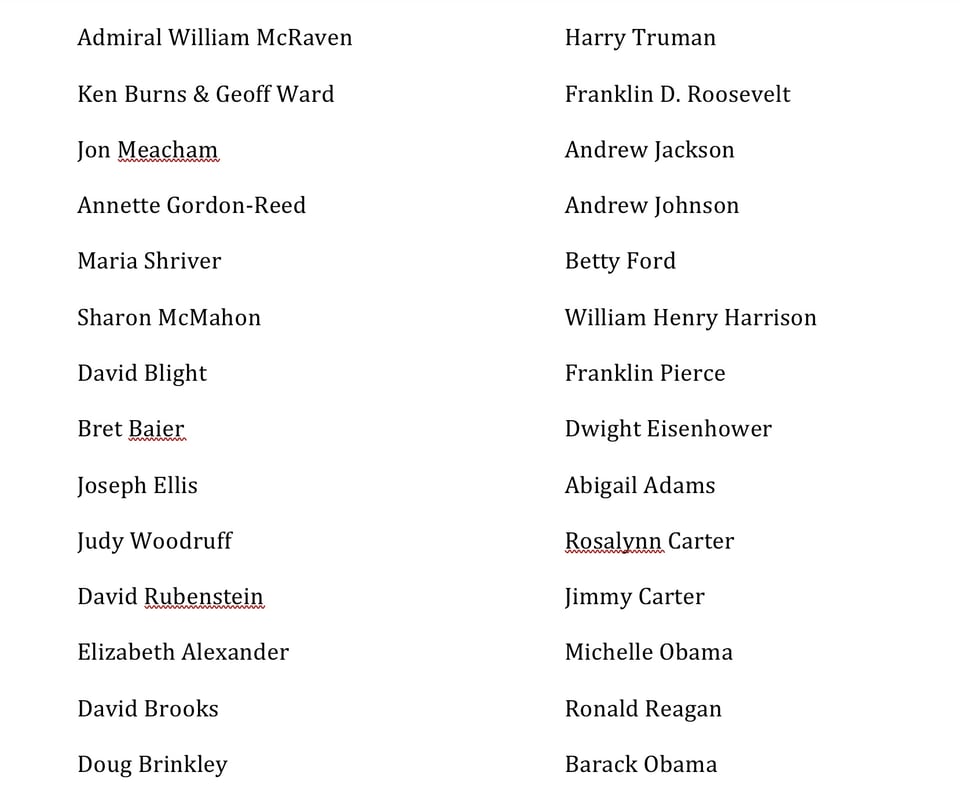
The most important events of the 2025 Trump London visit.
At least 4 million at the anti-Trump protest in London today.
— Florence Lox 🇬🇧🏴 (@floboflo) September 17, 2025
NO violence NO police injured NO arrests.
This is how they do it on the left pic.twitter.com/zjmOFJLi80
Trump spoke on the First Amendment.
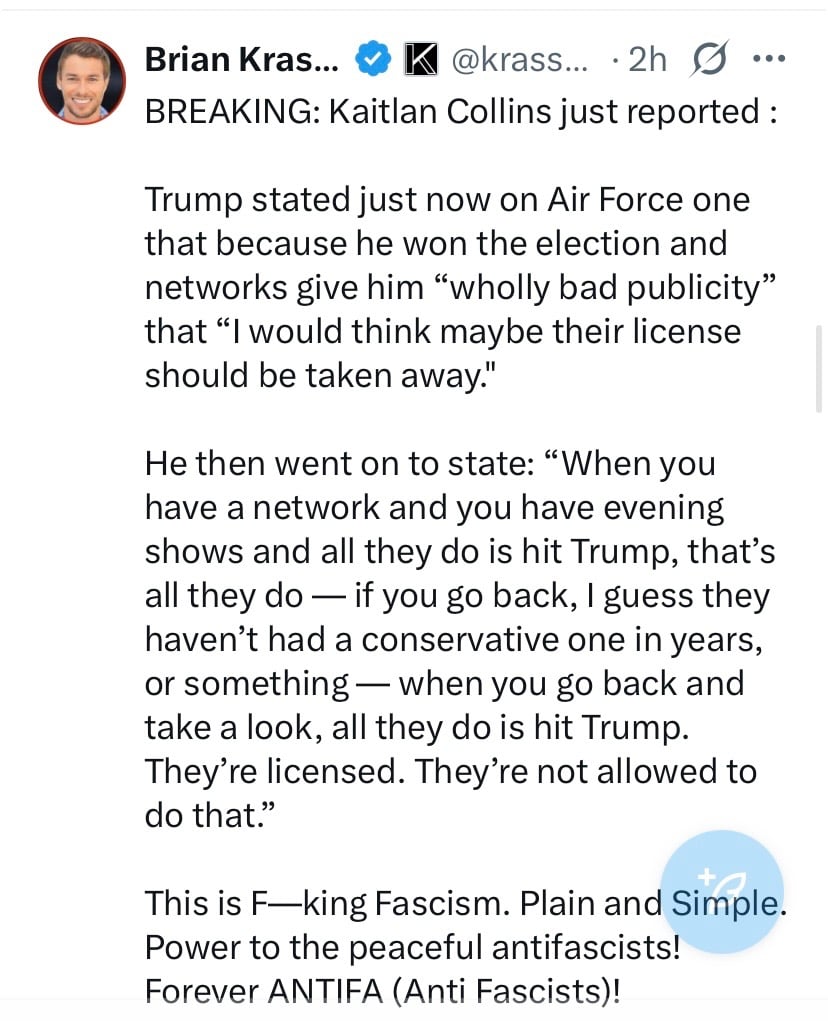
Charlie Kirk, on the other hand, had spoken on this - and now speaks to us from the grave.👇 Trump, are you listening?
